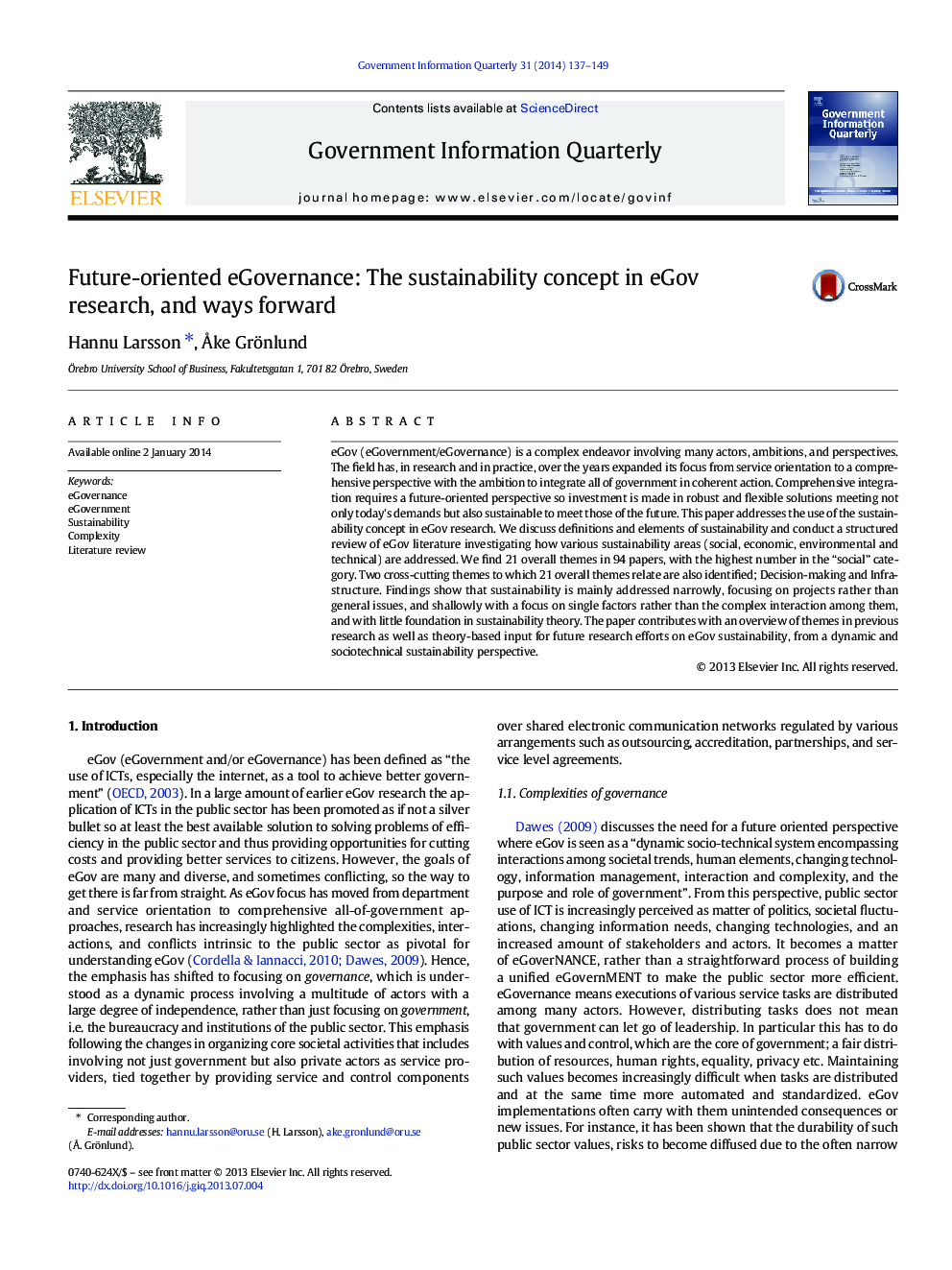| Article ID | Journal | Published Year | Pages | File Type |
|---|---|---|---|---|
| 1024461 | Government Information Quarterly | 2014 | 13 Pages |
•We review previous eGov research that uses the sustainability concept.•There use of sustainability theory is often weak, and use of the concept arbitrary.•The focus of research is often narrow, focusing projects rather than the bigger picture.•Most papers focus only on one sustainability dimension and not their interrelatedness•Further case studies and eGov sustainability theory development is needed.
eGov (eGovernment/eGovernance) is a complex endeavor involving many actors, ambitions, and perspectives. The field has, in research and in practice, over the years expanded its focus from service orientation to a comprehensive perspective with the ambition to integrate all of government in coherent action. Comprehensive integration requires a future-oriented perspective so investment is made in robust and flexible solutions meeting not only today's demands but also sustainable to meet those of the future. This paper addresses the use of the sustainability concept in eGov research. We discuss definitions and elements of sustainability and conduct a structured review of eGov literature investigating how various sustainability areas (social, economic, environmental and technical) are addressed. We find 21 overall themes in 94 papers, with the highest number in the “social” category. Two cross-cutting themes to which 21 overall themes relate are also identified; Decision-making and Infrastructure. Findings show that sustainability is mainly addressed narrowly, focusing on projects rather than general issues, and shallowly with a focus on single factors rather than the complex interaction among them, and with little foundation in sustainability theory. The paper contributes with an overview of themes in previous research as well as theory-based input for future research efforts on eGov sustainability, from a dynamic and sociotechnical sustainability perspective.
